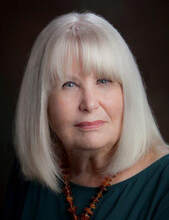Many friends want to know what’s happened to the free press in Russia that I was working so hard to establish as the USIA journalist-in-residence in Russia in 1995. For an up-to-date answer to that question, Monday I emailed one of the journalists I worked with that year. Here’s his response: “If you consume only Russian government media, and that is probably true for about 70 percent of Russians now, you wouldn’t even know there’s a war going on. It’s quite absurd watching this coverage. It’s like a parallel reality where you see a news piece about the Russian army liberating one Ukrainian town after another. They’re just making this up as they go. Not a single news story would mention that there was a war going on in Ukraine. “Not long ago I talked to a few editors at all these propaganda news networks, leading up to the invasion. Right now, all of them are so demoralized. They’re telling me that they’re absolutely devastated. Their souls are crushed.” And so many of them are simply leaving, as my friend has done. He’s now working as a journalist for the Meduza news website in Latvia. “I can’t go back to Russia until Putin is either not alive or not the head of the Kremlin. I love my country. I want to live there. I love Russia. I love my home. I love my parents. But I have to be realistic about this. “The day after I left, on March 4, the Russian parliament, in kind of an extraordinary session of both chambers, which rarely happens, passed a bill that effectively criminalized my work. It’s a law that punishes journalists for disseminating false information about the Russian military. The same day that we arrived in Latvia, we found out that our website was blocked for disseminating false information about the Russian special operation in Ukraine. It was obvious we were banned for calling the war a war. That’s not a word you’ll ever hear on the Russian government’s airwaves anywhere. “Reporting on the war is basically what I’m doing 24/7 now. We’re working six-day weeks and 14-15-hour days. This is our entire mission now.” Those thousands of Russians who marched in the streets of Moscow and St. Petersburg, chanting “No to war!” testify that Putin may have overplayed his hand this time. Those of you who have read my book, From Under the Russian Snow, which I discussed in this space three years ago, know that Anna Sharogradskaya is something of a hero to me. She directs the Regional Press Institute in St. Petersburg, where her efforts to instill the ethics of a free press to young journalists—despite the current conditions—have drawn the attention of the authorities. She’s been dragged into court time after time and officially declared a foreign agent, which means state auditors can come into her office any time and go through her laptop and trash her files without notice. On the day of the invasion, she spit in Putin’s eye with a screed against the war posted on Facebook. And now, at age 80, she’s in the eye of the hurricane once again. This morning she texted me that she’s just been informed that “the Russian authorities claim I do not have the legal right to leave the country. It appears I’m trapped.” Because I have so many friends in Russia, including three godchildren, I worry about how the rest of the world has begun to paint all Russians with the same broad brush. Nicholas Kristoff of the New York Times expressed my views in an opinion piece after Russian athletes were banned from Wimbledon and the Boston Marathon: “I understand the need to express revulsion at what Russia is doing. But I argue that we should be wary of treating every Russian citizen as the enemy, especially when so many Russians have been heroically risking arrest to protest the war. “I also worry that at a practical level, we should be peeling ordinary Russians away from Putin, and measures such as this simply lump all Russians together with Putin in a way that helps him.” And what of the Russians who lack the courage to speak out? They are huddled at home, convinced that they will pay a substantial price—in blood and treasure—for this war, for Putin’s folly. Michelle Carter is the former managing editor of the San Mateo Times. Throughout 1995, she travelled across the 11 time zones of the world’s largest country as the U.S. Information Agency’s Journalist-in-Residence in Russia. She is the author of two books, From Under the Russian Snow (Bedazzled Ink Publishers, 2017) and Children of Chernobyl: Raising Hope From the Ashes (Augsburg, 1993).
0 Comments
Leave a Reply. |
Bedazzled Ink AuthorsBlog posts from our authors. Archives
January 2023
Categories
All
|
Books & Imprints |
Information |
Contact |
Proudly powered by Weebly

 RSS Feed
RSS Feed